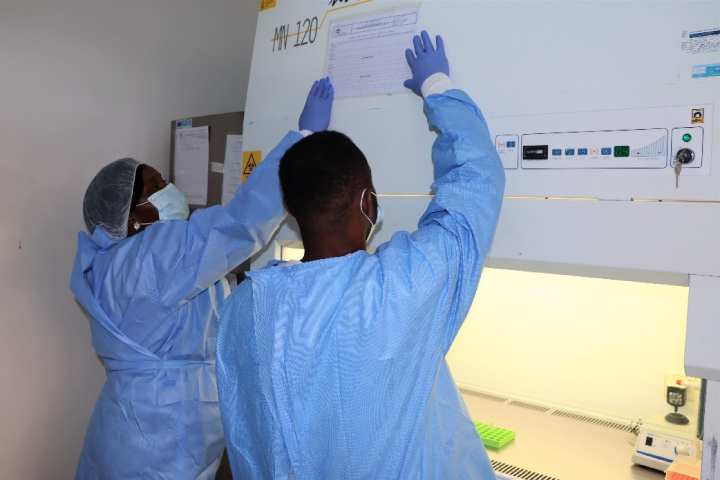
Operational Research
Operational research (OR) in health in Africa encompasses a range of key areas aimed at improving healthcare systems and outcomes. Some of the key areas that GHSS focus on include:
Disease Prevention and Control
GHSS focuses on research on effective strategies for preventing and controlling prevalent diseases, such as malaria, HIV/AIDS, tuberculosis, and other infectious diseases.
Healthcare Delivery and Access
We focus on studying ways to enhance the delivery of healthcare services, improve access to healthcare facilities, and address barriers to healthcare in remote or underserved areas.
Health Information Systems
We also focus on developing and implementing robust health information systems to collect, manage, and analyze health data for informed decision-making.
Maternal and Child Health
We are also investigating interventions and strategies to improve maternal and child health outcomes, including prenatal care, safe childbirth, and child vaccination programs.
Health Infrastructure and Resources
Assessing and optimizing the healthcare infrastructure, including the availability of medical facilities, equipment, and healthcare workforce distribution.
Health Financing
Researching sustainable and efficient methods of financing healthcare services to ensure equitable access without causing financial hardship for individuals or communities.
Non-Communicable Diseases
Investigating the rising burden of non-communicable diseases like diabetes, cardiovascular diseases, and cancer, and implementing preventive measures.
Community Health Interventions
Studying community-based health interventions to empower local communities in promoting health, disease prevention, and early detection.
Capacity Building and Training
Focusing on building the capacity of healthcare professionals through training programs and continuous education to improve the overall quality of healthcare services.
Technology and Innovation
Exploring the use of technology and innovation in healthcare, including telemedicine, e-health solutions, and mobile health applications to enhance healthcare delivery.
Our Process
LAB TECHNICIANS
RESEARCH CENTER
OUR EXPERIENCE
Disease Surveillance, Prevention, and One Health
Regional Integrated Surveillance and Laboratory Network (RISLNET):
- Central Africa RISLNET: GHSS has partnered with the Africa CDC to establish the Central Africa RISLNET including networking Chad, Cameroon, Republic of Central Africa, Gabon, Equatorial Guinea, Sao Tome and Principe, Republic of Congo, Democratic Republic of Congo, and Burundi.
West Africa RISNET: GHSS has partnered with Africa CDC, the West Africa Health Organization (WAHO), and the Pasteur Institute in Dakar to establish RISLNET in 14 countries in West Africa: Nigeria, Benin, Togo, Niger, Ghana, Cote D’Ivoire, Burkina Faso, Mali, Senegal, Cape Verde, Sierra Leone, Liberia, Gambia, and Republic of Guinea Bissau.
Final Report – AUC- Africa CDC Grant to GHSS 2018 – 2019 (1)
Our Process
Health Education and Awareness
Supply Chain Management
#1
200 CHWs and 10 supervisors selected across 23 regional health provinces in Chad trained.
In November 2020, GHSS obtained a subcontract from Africa Field Epidemiology Network (AFENET) to boost the response against COVID-19 in Chad and the Republic of Burundi.
#2
400 CHWs and 20 supervisors trained across the Republic of Burundi. 1 field bag, 1 thermo flask, 1 polo shirt, 1 t-shirt, 1 raincoat, 12 bottles of hydro-alcoholic gel and 2 boxes of 50 facemask each given to each CHWs.
#3
1,671,585 persons sensitized on COVID-19 preventions, signs and symptoms in Chad.
